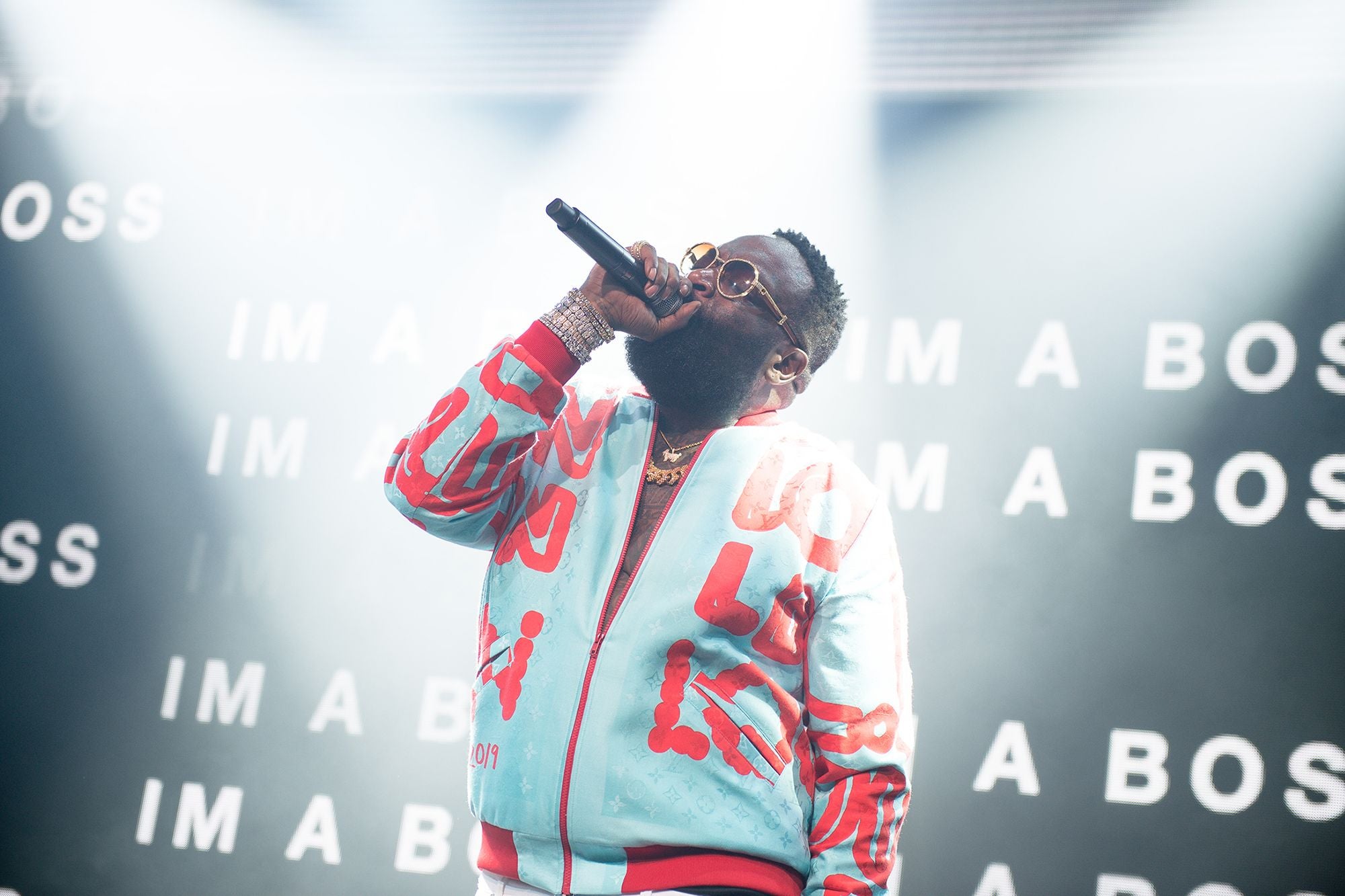3 Lessons Rick Ross Taught Me About Success The rap superstar shared words of wisdom from which all entrepreneurs could benefit.
By Brian J. Roberts Edited by Jessica Thomas
Opinions expressed by Entrepreneur contributors are their own.

I sat at the end of a conference table tucked inside the New York City office of French winemaker Luc Belaire, waiting for Rick Ross to arrive. Most know Ross as the larger-than-life, Maybach-admiring rap star. And no wonder. He's been a towering presence in the hip-hop world for over a decade, mentoring superstars like Meek Mill while releasing seminal records like "Hustlin'" and collaborating with fellow luminaries including Drake and Jay-Z. But just like his third studio album, Deeper Than Rap, suggests, there's a lot more to the man than music.
Ross is also a record label executive, New York Times bestselling author (Hurricanes), Wingstop and Checkers franchise owner and overseer of a vast real estate portfolio. Plus, he has a line of beauty and styling products sold at Sally Beauty Supply, with a full rollout at Walgreens slated for 2020. And he's been virtually synonymous with Belaire's sparking rose for years, championing it in music videos and among his circle of peers.
When the elevator doors finally opened, out came the Biggest Boss, entourage in tow. For the next hour, over Champagne and aromatic cigars, we spoke about money, music and more. Here are just a few takeaways for you from my interview with Rick Ross.
Related: 3 Startup Lessons From Hip-Hop Entrepreneurs
1. Save until you're sure what the best next move is.
When Ross got his first record deal, he did something unusual: nothing. He didn't buy jewelry, cars, clothes or anything else. Instead, he kept his mind on something bigger, saving his music money until he knew what that big thing was.
"Where I was from, getting money, talking about homes and being an entrepreneur -- that really wasn't the priority in Miami," says Ross. "My mind may have been on something bigger. I just wasn't sure, so when you're not sure, the best thing to always do is just save, just stack, and that's what I did. I didn't buy an automobile, I didn't buy anything.
As his protege Meek Mill famously said on the 2011 record "I'm a Boss": "Scared money don't make no money." But, to Ross, uncertain money won't make you money either. So, best to keep it stashed before spending until you've found an investment you're confident in. Which leads to takeaway number two.
2. Start where you are with what you know best.
After some careful deliberation, Ross decided that real estate was his best next investment. "Real estate was always my go-to thing," he explains. "I'm one of them dudes quick to say I'm not into what I can't see. I'm one of those guys that love to feel it.
Ross actually picked up on the power of real estate from his mom. "Where she's from, real estate was a little more affordable," he says. "And she did a lot of buying homes next door, across the street. I watched her do that for a long time, so I said: Let's take that to another level."
Instead of wasting time hiring people to think for him, or going in an unfamiliar direction, he started with what was familiar. "This is something that my team does well," he continues. "This is something that I watched my mother doing and my sister doing, so that's what we're going to invest in." Which leads to another important takeaway.
3. Knowing what not to do is as important as knowing what to do.
This concept is similar to one Tim Ferriss shared at a private Shopify event I attended several years ago. He recommends having a not-to-do list, which is a great way to minimize decision fatigue, save you time and keep you focused on your strengths.
Related: Why T.I. Says a Hustler Needs to Be Patient
Much like Ferriss, Ross recommends that you know what you don't want to invest in -- whether you're committing time, money, attention or anything else -- just as much what would interest you. In Ross's case, no stocks or Bitcoins are in play. His "high touch" investing preference keeps him focused and protected from potential distractions.
"I'm quick to say I'm not into what I can't see," he confirms. "All the guys that's profiting off that, congratulations. But me, I need to feel it. Does it have an address? Can I pull up to it and touch it? That was always my blueprint."










